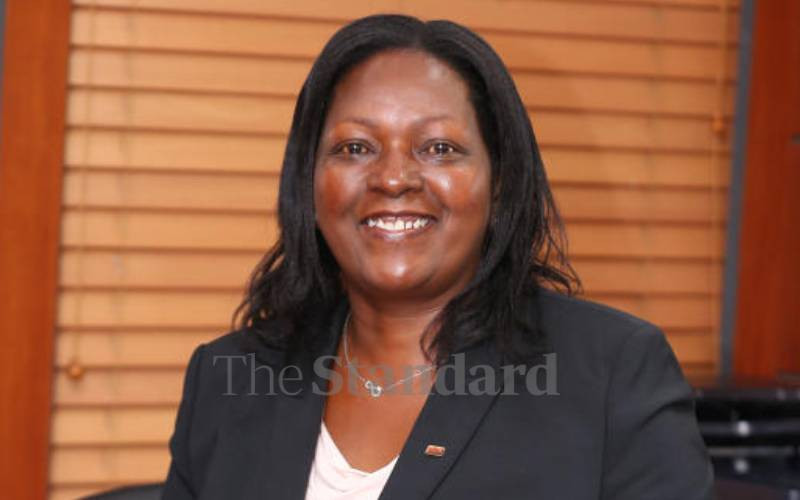
Equity Group Executive Director Mary Wamae has for close to two decades now been a part of Kenya's financial transformation journey, having joined the banking industry from the legal profession.
She shares her remarkable journey and the key financial lessons she has learnt along the way.
Describe your career journey, highlighting key milestones
 The Standard Group Plc is a multi-media organization with investments in media
platforms spanning newspaper print
operations, television, radio broadcasting, digital and online services. The
Standard Group is recognized as a
leading multi-media house in Kenya with a key influence in matters of national
and international interest.
The Standard Group Plc is a multi-media organization with investments in media
platforms spanning newspaper print
operations, television, radio broadcasting, digital and online services. The
Standard Group is recognized as a
leading multi-media house in Kenya with a key influence in matters of national
and international interest.











